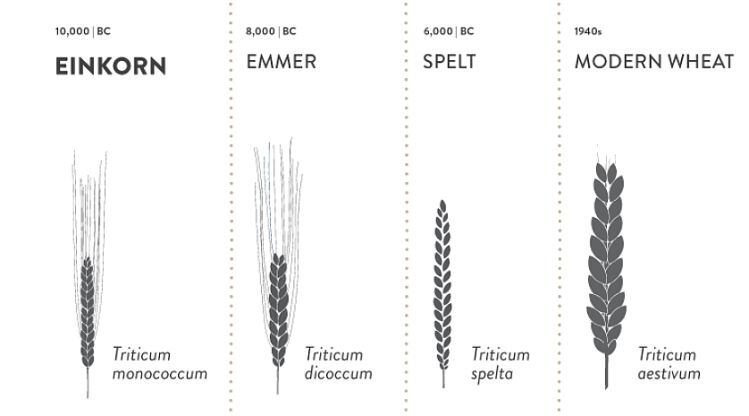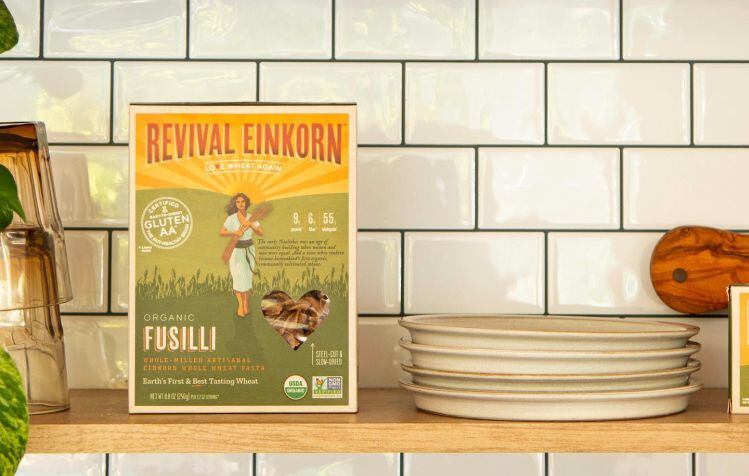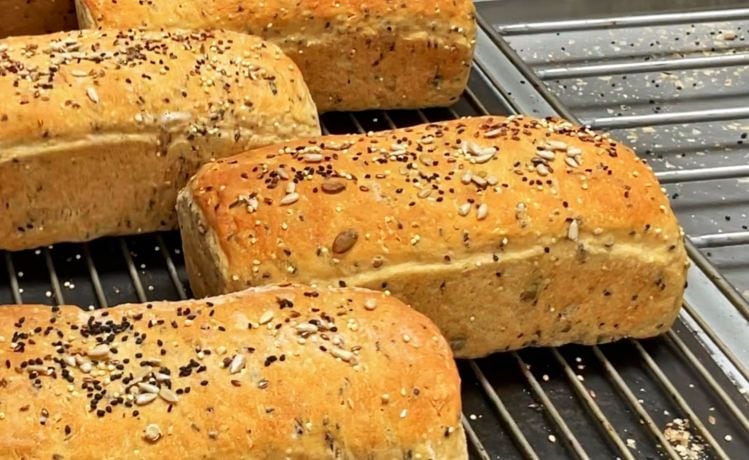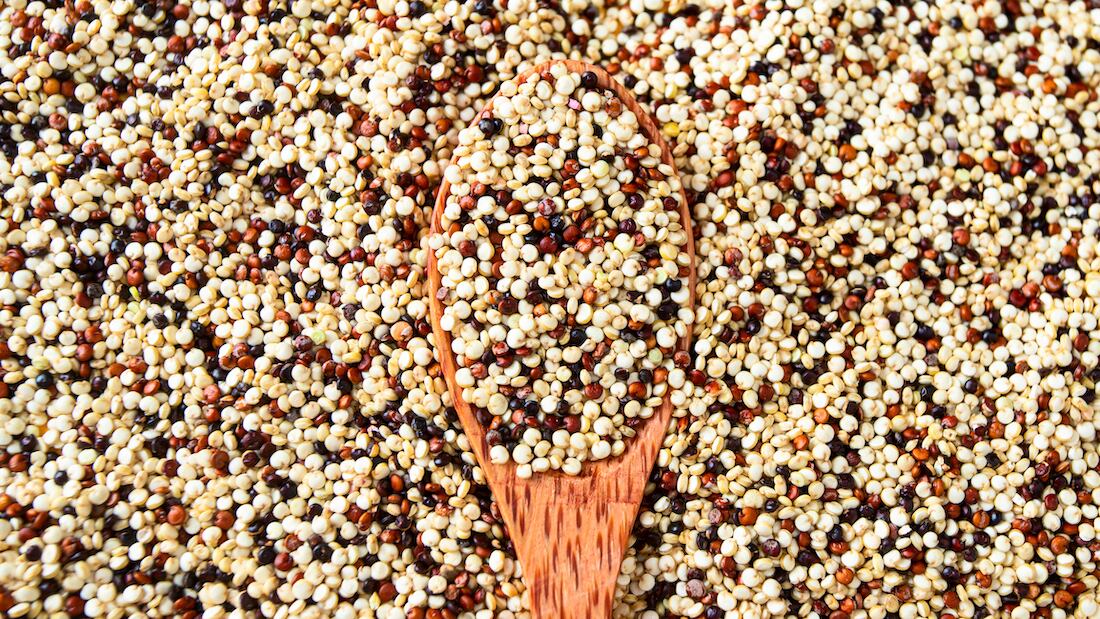Brand owner Werner Forster is not the first entrepreneur to bring einkorn to the US packaged food market. Jovial Foods – which imports a wide range of organic foods including einkorn flour, pasta, and cookies - was much earlier to the game.
However, Revival Einkorn is 100% dedicated to turning ‘earth’s first wheat’ into a household name and has been steadily laying down the groundwork on the agricultural side to make this feasible at scale, says Forster, a US food industry veteran currently based in Barcelona, Spain, who has partnered with farmers in Spain and Bulgaria to grow einkorn for consumer products sold in the US market (the base of the US business, The Wheat Revival Company, is in Encinitas, CA).
Nutrition and digestibility
Dubbed ‘earth’s first wheat,’ einkorn (Triticum monococcum, a diploid) was first cultivated 12,000 years ago, but gradually replaced by modern higher-yielding tetraploid (T. turgidum) and hexaploid (T. aestivum) varieties, and is intriguing on multiple levels, claimed Forster.
First, he said, it’s a nutritional powerhouse. Einkorn wheat berries contain up to 40% more protein than common wheat and significantly higher levels of micronutrients from iron, vitamin E and selenium to lutein, zinc, and B vitamins. As the berries are smaller, einkorn also yields a higher bran-germ to-endosperm ratio than modern wheat, helping to explain its higher phytochemical content (the bran and germ in wheat are more nutrient-rich than the starchy endosperm).
While there are several ‘alternative’ pastas made with everything from chickpeas to almond flour, Revival Einkorn pasta still looks and cooks as well as regular wheat flour, which is not always the case with some gluten-free brands, claimed Forster.
Second, he claimed, it’s easier to digest. While einkorn contains gluten, and is not therefore suitable for strict celiacs, its gluten profile is markedly different from that of modern wheat, featuring different gliadin and glutenin types and fewer immunogenic peptides, which means people with non-celiac gluten sensitivity (for which there is no diagnostic test) or who have been avoiding wheat find it easier to digest (hence the ‘love wheat again’ tagline).
There are also animal studies suggesting prebiotic and anti-inflammatory effects (read more here about published studies on einkorn).
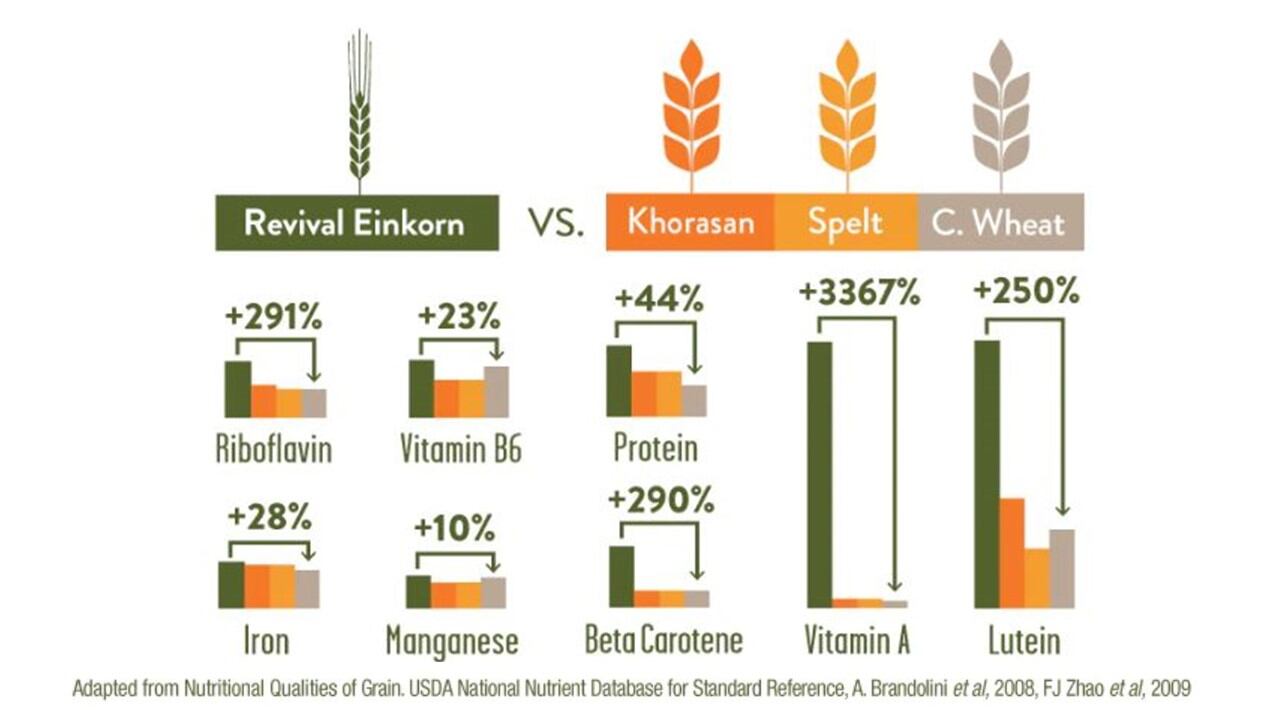
The sustainability story
Third is the sustainability story. While einkorn is a ‘dressed’ wheat protected by a husk attached to the grain that must be removed to process flour after threshing, which adds to processing costs, it is hardier than modern wheat varieties, with greater resistance to parasites, inclement weather, poor soil and arid conditions, enabling it to survive in marginal areas where modern varieties will not, Forster told FoodNavigator-USA.
“There's about 120 varieties and 23 that are genetically pure, and we found some we really liked the performance and the flavor of, and we have built a relationship with agronomists who did a good job in recovering this one particular variety and we just started building up the seed bank.
“We've mainly concentrated in the south of Spain with the right soil and climatic conditions to give good quality yields.”
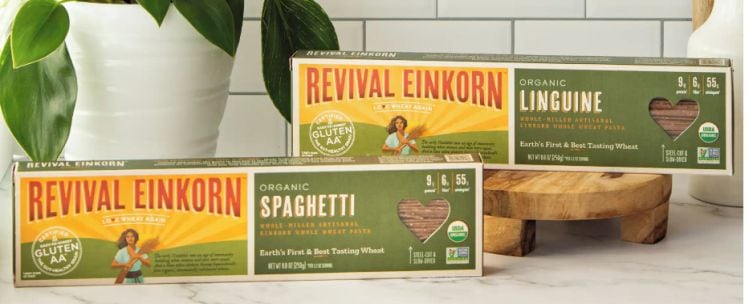
The hierarchy of attributes
So what’s the message to consumers, who may have spotted Jovial Foods’ products over the years, but are not generally familiar with einkorn?
There are a ton of attributes to highlight, with some shoppers likely to home in on the digestibility factors, others focused on protein and micronutrients, and others interested in the story (reviving an ancient grain), he says. “It literally took a year to get packaging down as there are so many benefits, but first and foremost it’s about loving wheat again.”
Launched early September in 8.8oz boxes at RevivalEinkorn.com and retailers including Erewhon Market, Gelson’s, Harmons Grocery, Jensen’s Foods, Jimbo’s, and Lazy Acres (SRP $4.99), the pasta products (which will be followed down the road by crackers) are already receiving re-orders, said Forster, who currently works with partners in Spain to mill the flour and process the products, but says down the line it may be possible to grow einkorn across the Atlantic if the business takes off.
“At some point, it could be interesting to grow einkorn in North America and we've been looking at a lot of different places.”
Yields: 'It's a survivor...'
But doesn’t the lower yield mean correspondingly lower margins (or conversely a premium product with more limited appeal)?
“Although it's a lower yield,” said Forster, “it's a consistent yield. You don't have really catastrophic years. It's a survivor, that’s how some of our farmers refer to it. It also does really well rotating with legumes that will fix nitrogen naturally, so you don't really need to do much else [for fertilizer] although we can turn the soil with organic fertilizers to supplement that a bit, but you don't need to."
As for protein content, he said, “This is our fourth year. We really haven't seen anything under 12% protein and have seen as high as 15%, while others have seen as high as 18% and that’s still with organic growing methods without watering and just with natural rainfall. So it's really good at converting to protein.”
So if Revival Einkorn is a hit in the US, does Forster have the ability to turn on the supply tap?
He explained: “I've been working on it from the beginning. This is not my first rodeo. So we're working with growers in Spain and the Balkans and have been speaking to quite a few parties that could allow us to scale five to 10 fold, let's say.”
